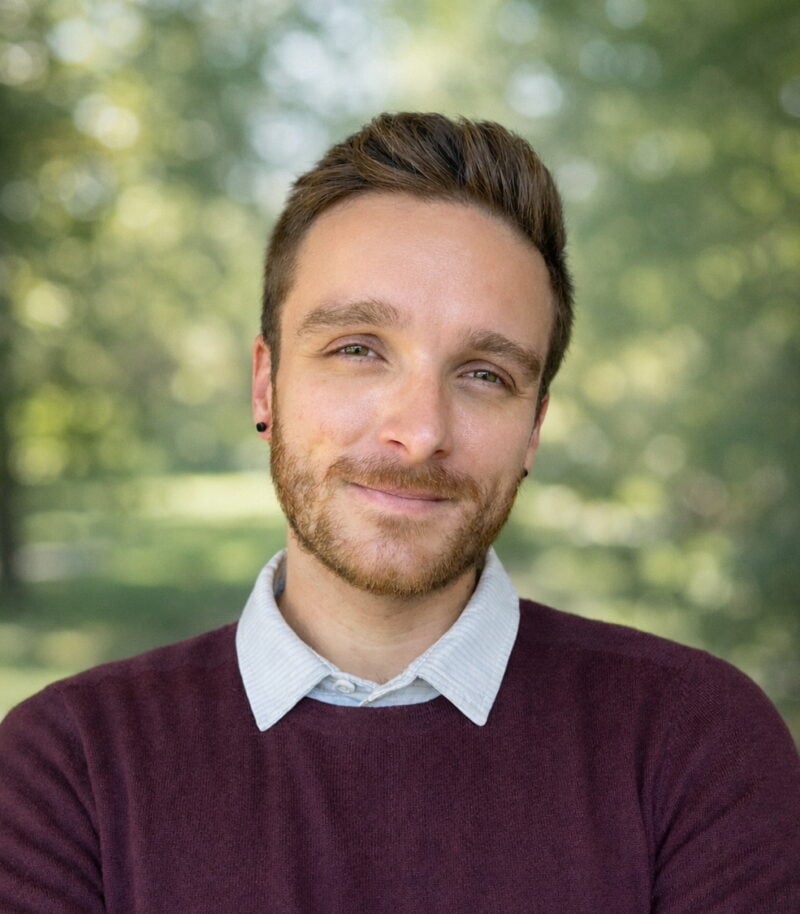
Dr. David Collict, C.Psych. (Supervised Practice)
About My Approach
I understand that seeking support can feel daunting, yet it’s also an act of courage and self-compassion. Turning inward and toward your challenges takes strength, and I view your decision to be here as a meaningful step toward growth and change. I offer adults evidence-based psychotherapy and assessment services to help us collaboratively explore your emotions, thoughts, and behaviours in a safe and supportive space. My goal is to ultimately create assessment and psychotherapy services that empower you to make shifts around emotional, personal and relational difficulties, and that contribute positively to the change you wish to seek in your life.
Individual Psychotherapy
I work with adults experiencing anxiety, depression, grief and loss, self-esteem issues, single-event and complex trauma (including emotional, physical, and sexual abuse), OCD, substance use and addiction, relational difficulties and conflict, anger, and emotion regulation difficulties. My clients come from diverse sociocultural backgrounds and life experiences, including gender, sexual orientation, ethnicity, age, first responders, among others.
Building a warm, empathic relationship is central to my work. I aim to deeply understand your pain and its developmental roots so we can create a shared understanding of your story and goals. Before our first session, I use evidence-based questionnaires and an in-depth intake to identify key patterns and challenges. Early in treatment, I share my understanding of what may underlie your difficulties, set collaborative goals, and check in regularly to assess progress.
My approach integrates Emotion-Focused Therapy (EFT) and Cognitive Behavioural Therapy (CBT), with elements of Dialectical Behaviour Therapy (DBT) to strengthen emotion regulation and distress tolerance. Treatment is individualized and flexible, combining insight, behavioural change, and emotional healing within an empathic relationship.
Couples Therapy
For couples, I begin with evidence-based questionnaires and individual intake sessions before moving into joint work. My approach draws on developmental, psychodynamic, and emotionally focused frameworks to help partners understand how early experiences and attachment patterns influence current relationship dynamics.
I help couples deepen emotional, physical, and sexual intimacy; rebuild trust after betrayal; and navigate challenges around communication, conflict, finances, parenting, and extended family. I also support partners coping with trauma, chronic illness, mental health challenges, or exploring non-monogamy and relationship diversity. Together, we work to foster empathy, emotional safety, and connection.
Assessment and Diagnosis
I provide comprehensive psychological assessments for adults, including:
- Psychoeducational assessments for ADHD, Autism Spectrum Disorder, and Learning Disorders
- Psychodiagnostic assessments for mood, anxiety, OCD, trauma, and adjustment disorders
I also have experience completing gender-affirming surgery assessments for trans and queer clients (i.e., assessment and diagnosis for gender dysphoria), who are seeking transition-related care, as required in the province of Ontario.
Psychological assessments can be beneficial for a variety of reasons, including that they can clarify self-understanding, or support requests for accommodations and services at school and work.
Training and Supervision
I completed my PhD and MA in Clinical and Counselling Psychology at the University of Toronto. I am a Clinical Psychologist (Supervised Practice) with the College of Psychologists and Behaviour Analysts of Ontario (CPBAO, #4066172). I have thousands of hours of psychotherapy and assessment experience and currently practice under the supervision of Dr. Jean Kim, C.Psych. (individual work) and Dr. Dino Zuccarini, C.Psych. (individual and couples work).
A few of my scholarly publications include the following:
Barry, A., Brennan, D., Davies, A. & Collict, D. (2024). Dating apps and shifting sexual subjectivities of men seeking men online. Sexuality and Culture. https://doi.org/10.1007/S12119-024-10231-1
Gillis, J.R. & Collict, D. (2022). Sexual orientations and the group of seven. In Kassan, A. & Moodley, R (Eds). Diversity and social justice in counselling, psychology and psychotherapy: A case study approach. Cognella.
Brennan, D., Kesler, M., Lachowsky, N., Davies, A., Georgievski, G., Adam, B., Collict, D., Hart, T., Salway, T. & Griffiths, D. (2021). Sociodemographic and psychological predictors of seeking health information online among GB2M in Ontario: Findings from the #iCruise Project. International Journal of Sexual Health, 34(2), 337-350. https://doi.org/10.1080/19317611.2021.2000087
Collict, D., Pfund, G., Rodriguez de los Reyes, G. & Hill, P. (2020). Identity formation among gay men, lesbian women, bisexual and heterosexual samples: Associations with purpose in life, life satisfaction, pathways to purpose and implications for positive sexual minority identity. Journal of Happiness Studies: An Interdisciplinary Forum on Subjective Well-Being, 22(5), 2125-2142. https://psycnet.apa.org/doi/10.1007/s10902-020-00313-w
Rodriguez de los Reyez, G. & Collict, D. (2020). “It’s not only about clinical tools but also our roles as agents of social change”: Implementing an LGBT competency training in Mexico. Journal of Homosexuality, 69(2), 230-253. https://doi.org/10.1080/00918369.2020.1815433
I am also a member of the Ontario Psychological Association (OPA).
Treatments
- Acute/Single-Event Trauma
- Anger & Emotion Regulation
- Anxiety & Stress
- Couples Therapy
- Depression, Mood & Grief
- Interpersonal Relationships
- Obsessive-Compulsive
- Self-Growth & Self-Esteem
- Sex Therapy
- Sexuality, Gender & Relationship Diversity
Assessment
- Attention Deficit & ADHD
- Autism Spectrum & Developmental Disorder
- Immigration & Refugee
- Personality & Interpersonal
- Psychodiagnosis & Mental Health
- Psychoeducation
Therapies
- Attachment-Based/Mentalization Therapy
- Cognitive-Behavioural Therapy (CBT)
- Dialectical-Behavioural Therapy (DBT)
- Emotion(ally)-Focused Therapy (EFT, EFFT)
- Existential-Humanistic Therapy
- Integrative Therapy
- Mindfulness-Based Therapies (E.G., MBSR, MBCT)
- Psychodynamic/Analytic
- Relational Therapy
- Systemic Therapy

